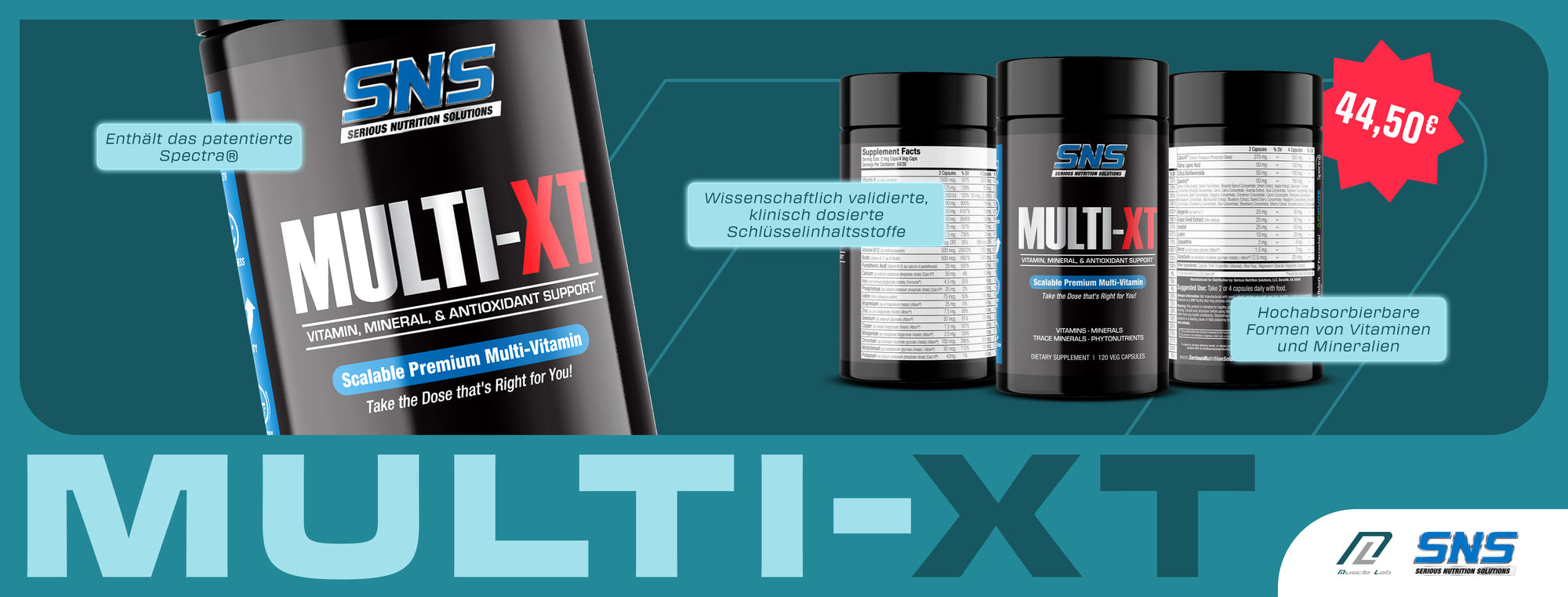Vitamins and minerals
Vitamins and minerals - micronutrients for general health
What are vitamins?
Vitamins are organic compounds involved in virtually all metabolic processes. They are vital to the body and are part of our diet, present in almost all foods. Although our body only needs small amounts of vitamins and minerals, they are essential for our health. Vitamins are produced by microorganisms and are found primarily in organic foods such as plants, vegetables, and fruits.
How do vitamins differ?
Vitamins are divided into two categories: water-soluble vitamins and fat-soluble vitamins. Unlike the macronutrients carbohydrates, fats, and proteins, vitamins are not used as building blocks or for energy production.
- Fat soluble: vitamin A, vitamin D, vitamin E, vitamin K
- Water-soluble: Vitamin B1, Vitamin B2, Vitamin B6, Vitamin B12 (all B vitamins), Biotin, Folic acid, Niacin, Pantothenic acid, Vitamin C
What are minerals?
Minerals, on the other hand, are inorganic components found in plant and animal foods. Our bodies require varying amounts of these minerals, which are also essential for many metabolic processes.
How do minerals differ?
Just like vitamins, minerals are divided into two different categories.
- Major elements: sodium, chloride, potassium, calcium, phosphorus, magnesium
- Trace elements: iron, iodine, fluoride, zinc, selenium, copper, manganese, chromium, molybdenum, boron, silicon
Why do we need vitamins and minerals?
As already described, vitamins and minerals are vital and indispensable for us, as they are involved in almost all metabolic processes. Minerals, in particular, also regulate electrolyte and water balance, are important for the development and maintenance of bones, muscles, and teeth, and also maintain a normal immune system. Vitamins are also needed as antioxidants to protect cells.
The most important vitamins for the body
Contrary to popular belief, the importance of vitamins for the body's overall metabolism is undisputed. People who exercise heavily need to supply their bodies with vitamins and minerals. Fruits (oranges), vegetables (peppers), grains, fish, meat, and potatoes, for example, are particularly rich in vitamins and minerals. Since everything these days has to be done faster and better, and there's hardly any time to prepare vitamin-rich food, dietary supplements can be helpful. If we look at vitamin B, for example, the following becomes clear: This vitamin supports protein metabolism and reduces everyday fatigue and exhaustion. Vegans should also consider taking additional B vitamins.
The most important minerals for the body
Especially with regard to the different amounts of minerals consumed, requirements vary greatly. In general, many people suffer from a selenium deficiency, which is caused by nutrient-poor soils. Zinc and magnesium, on the other hand, are readily available in food and also in dietary supplements.
Which vitamins should you supplement?
This can only be answered to a limited extent, as many vitamins are found in our food and it's impossible to estimate how much each person eats per day, and especially what they eat. However, there are some vitamins and minerals that humans either don't produce, or don't produce sufficiently, or that are only present in insufficient quantities in food. These include:
- Vitamin D3
- Vitamin K2
- Omega-3 fatty acids
- selenium
- Vitamin B (Vegans)
- Iron (Vegans)
Which minerals should you supplement?
Magnesium and zinc supplementation is particularly recommended for athletes, as their needs are greater than those of non-athletes. Selenium supplementation is also recommended to normalize thyroid function. Vegans, and in some exceptions, those with a low-meat diet should also take iron for blood formation.
How can vitamins and minerals be taken?
There are numerous ways to take vitamins. They can be administered in a variety of forms, including powder, capsules, tablets, oral ampoules, depot injections, or juice.

















































